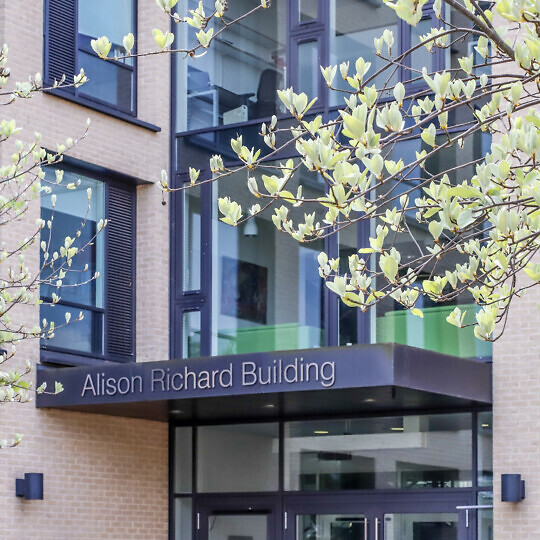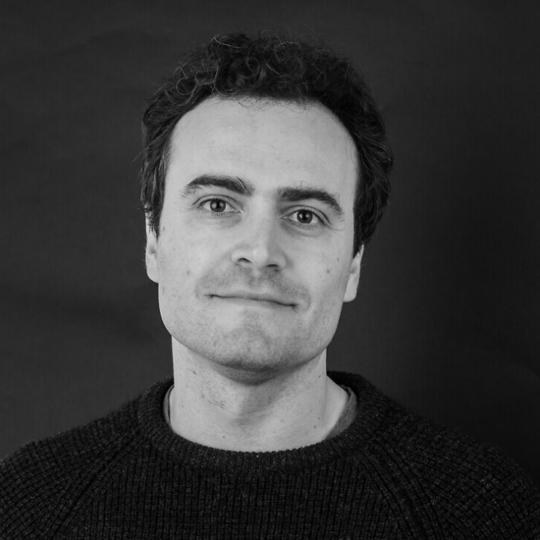| 2 Feb 2022 | 12:30 - 14:00 | Online event | |
- Description
- About
Description
These seminars were a wonderful way to feel anchored in the institutional life of CRASSH
– Dr Mary Augusta Brazelton, Early Career Fellow, Easter Term 2021
This event is part of the CRASSH fellows work-in-progress seminar series. All are welcome but please register to book your place and to request readings.
Dr Annja Neumann
Waiting to be seen: a prescription for a future performance
Under the Covid-19 pandemic, people often find themselves in a place of non-life: waiting to live, waiting to engage in face-to-face encounters. Birth and death imply that there is a life between both; and yet our future is placed on pause. In this limbo state, and in spite of its troubling nature, the spectacle of people falling ill and being admitted to hospital distracts us from our own mortality. In this way, comforting and troubling at the same time, the Covid drama on our screens is thrown into relief. It shows continuities in times of drastic change. My performance-based research explores how we move and co-create shared spaces in times of uncertainty. In doing so, it examines the waiting room as a spatial imaginary of the Covid-19 pandemic by entangling medical, digital and theatrical spaces.
My research project ‘Actors on a new Stage’ works across theatre and performance studies, the digital humanities, and critical medical humanities. Taking my bearings from a collaborative practice-based research project, named Looming Futures: a waiting room performance(first performed on 25 September 2021 in Atelier Stroud), I will engage with a ‘snapshot of practice’ in the seminar. My text interweaves material practices of making medical performance with contextual and theoretical reflection.
In the session, I will expand on the critical analysis of the waiting room performance with the aim to rework the ‘snapshot of practice’, an invited contribution to the Routledge Companion to Performance and Medicine, into a book chapter. This will include an exploration of theatricality (particularly the co-creation of shared spaces and collective stories) and theatres of health and agency as articulated through clinical practice; digital platforms; contemporary dance; and last but-not-least the practices of waiting explored byLooming Futures.
Medicine has always been theatrical. Practices of waiting, and spaces where staff dress and prepare, play an essential part in choreographies of the clinic. The latter is co-constituted in spaces where both medical staff and patients are waiting to perform. The cue to perform can be given by a physician who is ready to see you. This acts as a prompt to take up a new role: for instance, to step into the role of a narrator who recounts a tale of illness or recovery. Equally, role-changes in medical encounter can be driven by patients or nonhuman agents.
Looming Futures opposes the idea of (Covid) drama as a source of distraction. This site-specific performance engages with the waiting room as a performative imaginary of the Pandemic, one that affords agency or possibilities of future action and is constantly in flux, and where audience members shift between ‘patient[s]-in-waiting’ (Dumit 2012, 56) and performers. In that way, the performance stages the (impossible) return of someone or something, or the anticipation of treatment and diagnosis, by inviting participants to inhabit that space interactively. In so doing, it employs practices familiar from weaving: redrawing bodily borders between the different agents, role-changes, and interweaving storylines.
While mediatized accounts of the Pandemic frequently cover up the emptiness of our new existence, Looming Futures explores what people actually bring to a waiting room, a room that marks space and time through shared practices. In other words, how does the Covid-19 Pandemic act as a medical encounter that medicalises and theatricalises our daily life?
Looming Futures: a waiting room performance was led and co-directed by CDH Research Fellow Annja Neumann and Uta Baldauf, a poet, performer and clinical nurse (in training at the University of Gloucester). Choreography and movement were developed in discovery workshops in collaboration with dancers and choreographers Brenda Waite and Alex Howard.
About
Annja Neumann is an Isaac Newton Trust Post-doctoral Research Fellow with Cambridge Digital Humanities at CRASSH.
Annja Neumann is an Affiliated Lecturer in Modern German Studies and Isaac Newton Trust Post-doctoral Research Fellow in Digital Humanities. Her practice-based research explores the staging of spaces and politics of embodiment, with a particular interest in the theatricalisation of medical spaces. Before taking up her post at Cambridge Digital Humanities (CDH), Dr Neumann was Research Associate of the AHRC Schnitzler Digital Edition Project at Cambridge. After studying German and Cultural Anthropology at the Universities of Heidelberg and Uppsala, she came to London for her PhD, which she completed at Queen Mary in 2012. Following on from her research on temporalities and historicities of post-1945 German poetry, she currently works on embodied space, digital dramaturgies, and medical scenography, drawing on her training as a cultural anthropologist.



